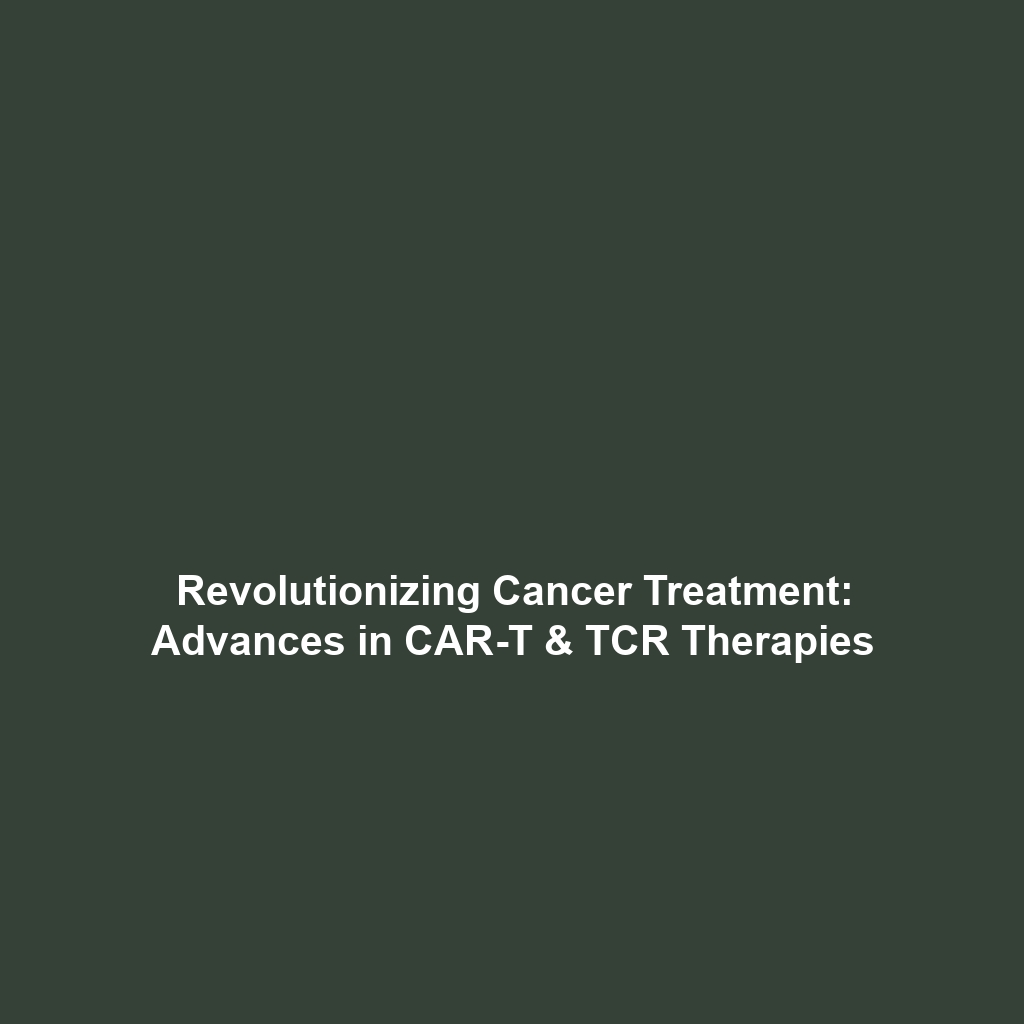How Drugs Like Pembrolizumab (Keytruda) and Atezolizumab (Tecentriq) Are Used in Lung Cancer Treatment
Introduction
Immunotherapy has emerged as a groundbreaking approach in cancer treatment, particularly for lung cancer. Drugs like pembrolizumab (Keytruda) and atezolizumab (Tecentriq) represent significant advancements, enhancing the body’s immune response against malignant cells. This article delves into the mechanisms, applications, and challenges of these immunotherapeutic agents in lung cancer, showcasing how they fit into the broader context of Immunotherapy & Cancer. Understanding their role is crucial for the ongoing fight against this prevalent disease.
Key Concepts
Mechanism of Action
Pembrolizumab and atezolizumab are both monoclonal antibodies that inhibit the programmed cell death protein 1 (PD-1) and its ligand PD-L1 pathways. By blocking these interactions, these drugs enhance T-cell activation, allowing the immune system to more effectively target and destroy lung cancer cells.
Classification in Immunotherapy
These drugs are classified as immune checkpoint inhibitors and are pivotal in the category of Immunotherapy & Cancer. Their use has transformed the treatment landscape, especially for patients with non-small cell lung cancer (NSCLC) who progress after standard therapies.
Applications and Real-World Uses
The application of pembrolizumab and atezolizumab in clinical settings demonstrates their efficacy in treating lung cancer effectively. Here are some notable uses:
- Pembrolizumab: Approved for first-line treatment in metastatic NSCLC with high PD-L1 expression.
- Atezolizumab: Frequently used for patients with advanced lung cancer following chemotherapy.
These examples highlight how pembrolizumab and atezolizumab are used in lung cancer treatment, exhibiting significant clinical benefits that have reshaped patient outcomes.
Current Challenges
Despite their effectiveness, the use of pembrolizumab and atezolizumab in lung cancer treatment faces several challenges:
- Response Variability: Not all patients respond to these drugs, necessitating further research for biomarkers predictivity.
- Immune-Related Adverse Events: These inhibitors can lead to autoimmune reactions, complicating their administration.
- Access and Cost: The high cost of treatment remains a significant barrier for many patients.
Addressing these challenges of immunotherapy in lung cancer is crucial for improving patient accessibility and treatment efficacy.
Future Research and Innovations
Looking ahead, several innovative developments are on the horizon regarding pembrolizumab and atezolizumab:
- Combination Therapies: Research is underway to explore the synergistic effects of combining these drugs with other treatment modalities.
- Next-Generation Technologies: Breakthroughs such as personalized medicine and tumor profiling are expected to refine treatment choices.
The impact of these advances may profoundly shift the landscape of Immunotherapy & Cancer, offering new hope for lung cancer patients.
Conclusion
In summary, pembrolizumab (Keytruda) and atezolizumab (Tecentriq) have revolutionized lung cancer treatment through their role in immunotherapy. Their effective use has significantly improved patient outcomes, but challenges remain. Future research focuses on overcoming these hurdles, enhancing treatment personalization, and improving accessibility. For more insights on related topics, visit our pages on immunotherapy options and lung cancer research advancements.

